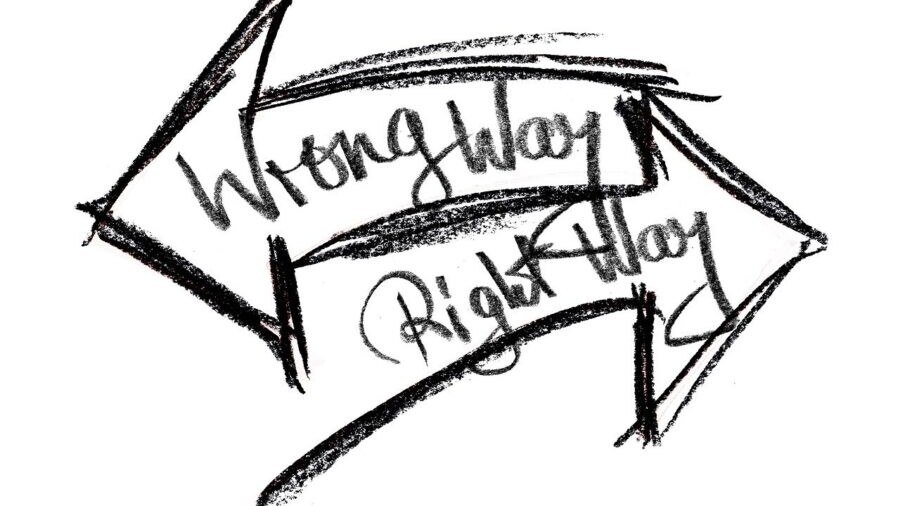Ethical dilemmas can often be the most complicated type of workplace investigation that investigators have to navigate. The trick with ethical dilemmas is that there is often no clear answer or solution, and no policies that expressly dictate what the right solution is. In a world where businesses and organisations are increasingly held to higher ethical standards, the ability to effectively conduct investigations into ethical dilemmas has become an indispensable skill. These dilemmas can range from issues such as employee misconduct, conflicts of interest, fraud, and environmental concerns, to more complex matters involving privacy, discrimination, and social responsibility.

The uniqueness of ethical dilemmas lies in their inherent ambiguity and subjectivity. Unlike other workplace investigations where procedures and policies offer a clear roadmap, ethical dilemmas frequently lack explicit guidelines. This places a considerable burden on investigators to navigate workplace issues with sensitivity, impartiality, and a commitment to finding just resolutions. This article will delve into the important considerations to remember when doing so and equip employers with practical strategies for effectively addressing ethical dilemmas in their workplace.
Strategies for Investigating Ethical Dilemmas
Defining Ethical Boundaries:
A robust code of ethics or conduct is the cornerstone of any ethical investigation. Defining ethical boundaries within your organisation sets clear expectations for employee behaviour. Such codes often encompass principles like honesty, integrity, fairness, and respect. These guidelines provide investigators with a framework for evaluating whether a behaviour or action aligns with the organisation’s values.
However, simply having a code of ethics is not enough. It’s essential to regularly review and update these guidelines to ensure they remain relevant and effective. Moreover, organisations should promote and communicate these principles actively, integrating them into the organisational culture. Employees should understand that ethical behaviour is not just a set of rules but a core aspect of the workplace culture.
Establishing Transparency:
Transparency is a fundamental requirement in ethical investigations. All parties involved should be well-informed about the investigative process, their rights, and the potential outcomes. This transparency fosters trust among employees and stakeholders and encourages them to come forward with concerns without fear of retaliation.
In practice, this involves clear and honest communication. Investigators should inform employees of their right to confidentiality, the scope of the investigation, and the expected timeline. Regular updates on the progress of the investigation help maintain transparency and build confidence in the process.
Remaining Impartial:
Impartiality is the bedrock of ethical investigations. To ensure a fair process, investigators must remain unbiased and free from conflicts of interest. Bias can taint the investigation and undermine its credibility.
One practical strategy is to appoint investigators who are not directly involved in the situation and have no personal stake in the outcome. Training investigators in recognising and mitigating bias is also crucial. Moreover, documenting every step of the investigation, including the rationale for decisions, helps demonstrate the impartiality of the process.
Gathering Comprehensive Information:
Ethical dilemmas often require investigators to collect a wide range of information. This includes conducting interviews with witnesses, reviewing relevant documents, and, in some cases, seeking expert opinions. Comprehensive information gathering is crucial because it provides a complete picture of the situation, allowing investigators to make informed decisions.
Interviewing skills are particularly vital in this regard. Effective questioning techniques, active listening, and the ability to discern inconsistencies or gaps in information can lead to more accurate findings. Furthermore, maintaining thorough documentation of all collected information ensures transparency and accountability throughout the investigation.
Collaborative Decision-Making:
In workplace investigations that involve a question of ethics, it is often beneficial to involve multiple individuals in the decision-making process. Collaborative decision-making not only reduces the risk of bias, both conscious and subconscious but also enriches the perspective and input available, increasing the likelihood of a fair and well-rounded outcome.
When a single investigator or decision-maker handles ethical dilemmas, their personal biases, values, and experiences can unintentionally influence the outcome. By bringing together a diverse group of individuals, such as an ethics committee or small panel, you can draw from a wider range of perspectives and expertise. Collaborative decision-making allows for in-depth discussions, debates, and a thorough examination of the ethical issues at hand. This process can lead to more robust and balanced decisions, enhancing the credibility and fairness of the investigative process.

Balancing Interests:
Balancing conflicting interests is a significant challenge in ethical investigations. Employees’ rights and interests must be weighed against the organisation’s objectives and the interests of other stakeholders. Striking the right balance requires a careful and nuanced approach.
To do this, investigators should consider the ethical principles at play and the potential consequences of different decisions. Collaborative problem-solving and mediation can be useful techniques to reach mutually agreeable solutions, fostering a culture of fairness and equity within the organisation.
Documenting the Process
Thorough documentation is essential for maintaining transparency and accountability throughout the investigation. Every step of the process, from initial reports to final decisions, should be meticulously documented. This documentation includes notes from interviews, findings, actions taken, and the rationale behind decisions.
A well-documented process not only provides a clear record of the investigation but also serves as a valuable resource for future reference. In cases where decisions are challenged or questioned, comprehensive documentation can demonstrate the fairness and integrity of the investigation, helping to uphold the organisation’s reputation and ethical standards.
Interviewing Techniques for Ethical Dilemmas
Conducting effective interviews is a critical aspect of any workplace investigation, but they are particularly important when dealing with ethical dilemmas. Skillful interviewing can yield valuable information, help maintain the integrity of the investigation, and ensure fairness to all parties involved.
To conduct interviews effectively and professionally, it is crucial to create an environment that fosters open communication and trust. Choose a private and neutral location for interviews, ensuring that participants feel comfortable and secure. Privacy allows interviewees to speak candidly without fear of reprisal or judgment. Questions asked should be open-ended and non-confrontational. Such an approach encourages interviewees to provide detailed responses, offering a more comprehensive view of the situation. Avoid leading questions, as they may inadvertently influence or bias the responses.
Maintaining a non-judgmental and empathetic tone throughout the interview is equally important. Regardless of the nature of the ethical dilemma, it is essential to create an atmosphere where interviewees feel heard and understood. This can lead to more honest and candid responses, contributing to the overall effectiveness of the investigation.
Ethical dilemmas will continue to challenge workplaces, however, with the knowledge and practices outlined in this article, you will be better prepared to navigate them towards a fair outcome. Doing so will not only strengthen your organisation’s ethical fabric but also foster a workplace culture rooted in integrity, transparency, and accountability.
Table of Contents
Let's Get Started
Interested in learning more about how Polonious can help?
Get a free consultation or demo with one of our experts




